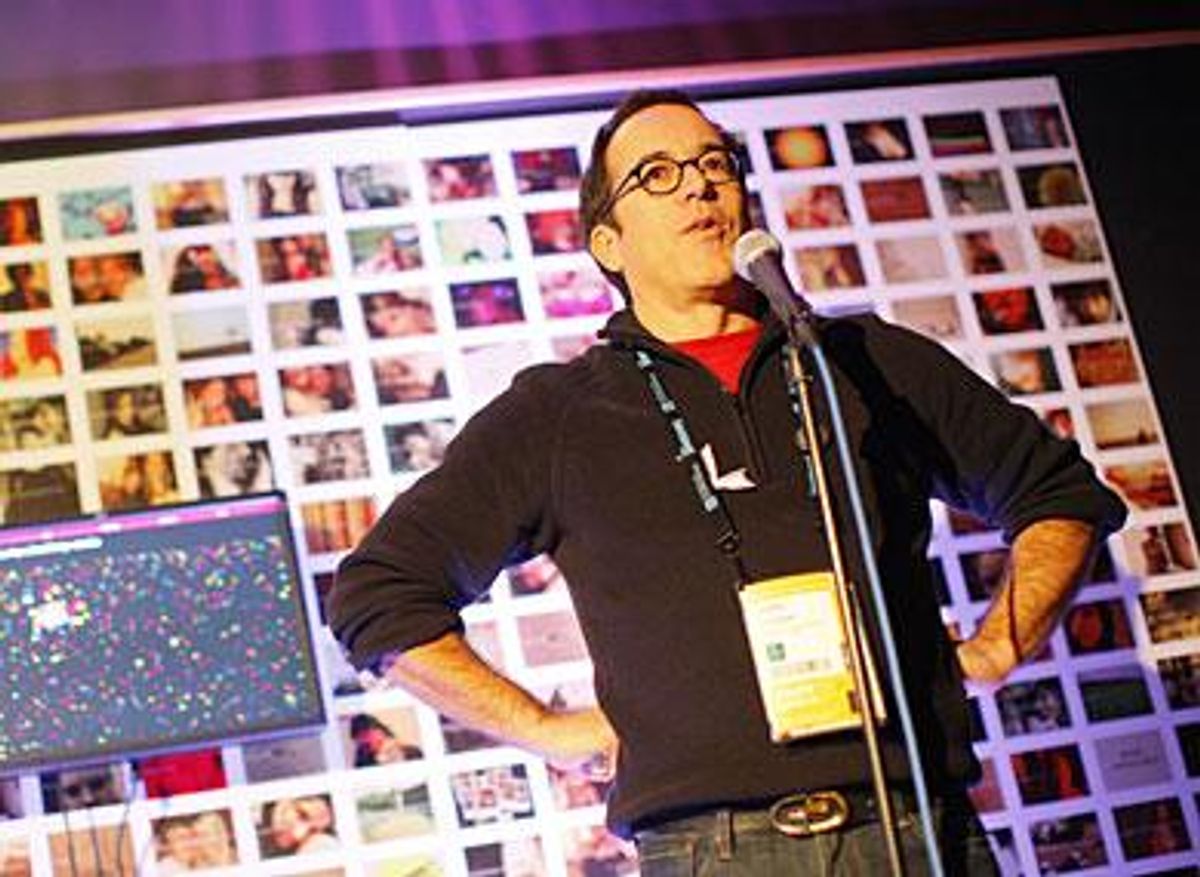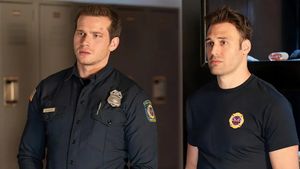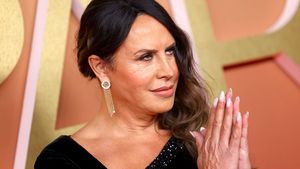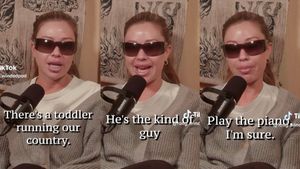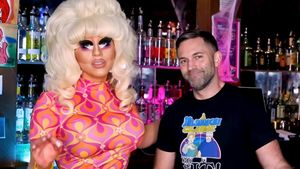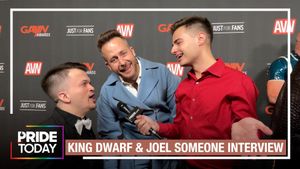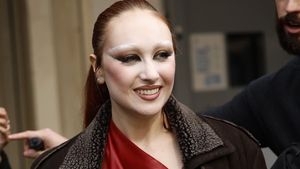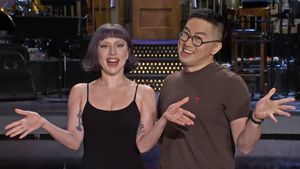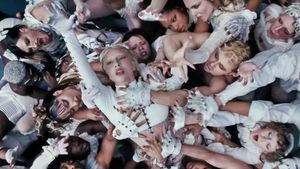Just weeks ago, Geoff Gilmore left his longtime post as director of the Sundance Film Festival, opening up a slot that was neatly filled by Sundance vet John Cooper. Formerly the festival's director of programming, Cooper's promotion heralds the arrival of an out gay man at the helm of the country's most influential film festival. We spoke to Cooper to get his take on the new gig, and to find out where Sundance -- and the queer cinema presented there -- are headed.
Congratulations! Have you gotten your new business cards yet?No. [ Laughs ] In this economic crisis, I thought they were going to make me just write on my old ones with Magic Marker.
So, I think everyone was pretty much shocked by Geoff leaving. What was your reaction? Were you privy to the fact that this was coming down the pike?It's that weird thing when you're startled that something actually happened, but I knew that he was looking for other situations. I knew that he really wanted to move to New York, but I wasn't sure if that would lead to more Sundance Channel stuff or what. But he'd been looking for a while, and he'd been up for this change.
And then, just from talking to some other people, I think the common consensus was, Oh, John Cooper is totally getting a promotion. That's a no-brainer. Was it a no-brainer on the inside too?It was a weird thing...the day after, it was like, "Well, why isn't anyone offering me the job?" But then I realized that these things have to go to a board and work their way through. They could have done a search, which actually just prolongs things...I was up for it, I could have done that, but I'm glad they didn't because now I can just get to work. I mean, we're right in the beginning stage of planning and budget and all that stuff.
So how did it go down?It happened pretty quick. It was pretty much just one conversation. I did like that all the conversations were, "This is not a job interview," but of course, it all kind of was. Even when Redford came into the office and said, "This isn't a job interview," it was like, OK then, what is it? [ Laughs ] But it was really just to create some formality around the switch, I think.
Obviously, having you as the director of the festival is a great thing for Sundance as far as continuity. But I'm curious....is there anything unique you feel you can bring to this job -- that may take it in new directions?I'm going to look at everything, especially staffing and workload. People keep saying, "What are you going to do now?" and I'm kind of planning on listening for a while. I'm going to listen not only to the industry -- which is in its own form of chaos -- and the press corps, but also the filmmaking community. I want to see where things are going, especially in the low-budget arena. There seems to be a lot of growth there. Am I babbling yet?
No, not at all. Have you had to do a lot of these interviews today?No, actually. It's really funny...this guy from the New York Post called me...
Lou Lumenick?Yeah. He was like, "I'm on vacation, but I have to write about this," and he called me a mensch and said I picked up him and his daughter at a bar and drove them somewhere...I always pick up people at Sundance, so it's not shocking to me, but it was such a funny, personal approach to it. It was very sweet, I loved it.
You know that Lumenick once hit Roger Ebert with a binder at a festival.I just found that out! I had to make sure, "Who is this guy? Like, is he just someone I thought was cute once?" [ Laughs ] I was kind of curious.
What's the biggest challenge for Sundance right now? You mentioned the economic crisis...certainly, there were a lot less people at Sundance this year because of that.I know, and I don't know if we're at the end of that. I can see where a lot of people can't afford to come, but there are a lot of ways that people can come to Sundance for cheap. As far as changes being made to Sundance, though, I think that any changes made because of the economic crisis would be the right changes to make anyway.
Now that this year's festival has concluded -- and now that a gay man has been named to be in charge of it -- I have to ask you how you felt about the rumblings earlier this year that people might boycott Sundance because Utah funneled so much money into Prop. 8.When it all got down to it, I had to go against the boycott. I thought it was a little misguided. I believe in boycotts in general, and I would support anyone who did them, but I knew how this would affect Sundance financially. There was this big economic storm cloud coming, and in another year, we could have lost money to this, but to even not use those [Cinemark] theaters, which people were questioning, would have cost us half a million dollars. You try to decide, does the mission and the work that someone does at Sundance override the boycott? Anyone who comes to Sundance and knows the theater situation knows that we couldn't just, like, move down the street to the Arclight or something. This would have affected everything, but especially the filmmakers. I just wasn't ready to go there this year.
A couple years ago, I interviewed you about the gay films at Sundance, and you told me that the "coming-out story" is no longer the fresh story...and neither are the "gays are people too" story. What's your vibe on where queer films and gay themes are headed at Sundance?From young filmmakers, I think we're really going into a "fuzzy sexuality" phase more than gay or straight. Like with Dare , I don't know if you saw it, there's a lot of that energy in that film where the characters are "maybe gay, maybe not." It's this new attitude toward sexuality, and I think it's kind of fresh. Also, I think we're going to see a lot more hard-hitting political documentaries. Prop. 8 was sort of a wake-up call...but when something like that comes along, it's not like it's the filmmakers suddenly jump into gear, it's that the people who give money to filmmakers jump into gear. I can see that fire in the belly to finish this thing off, to get to the next phase in American life.
